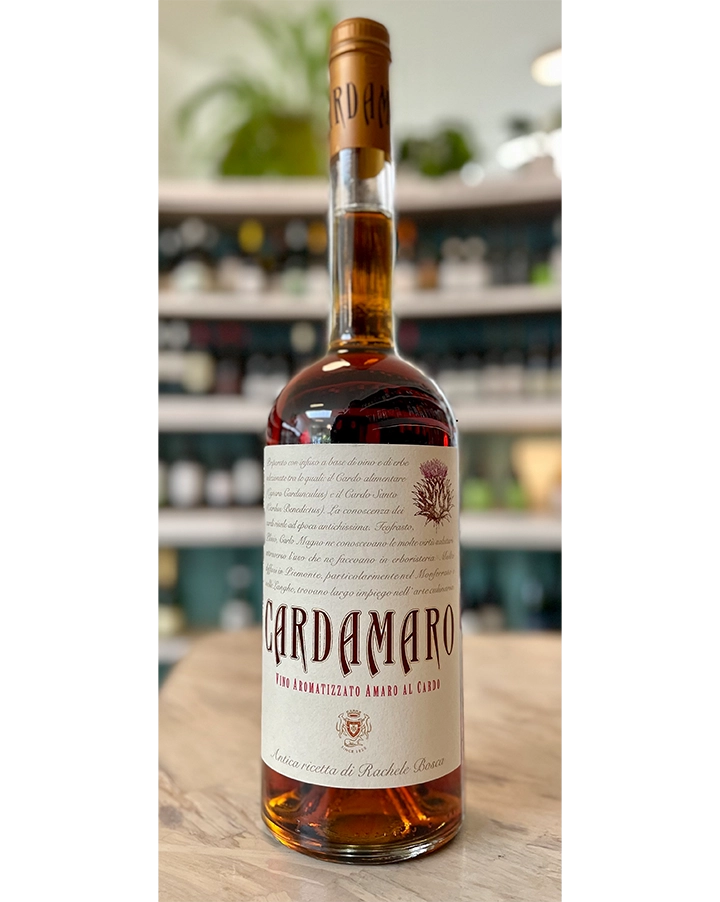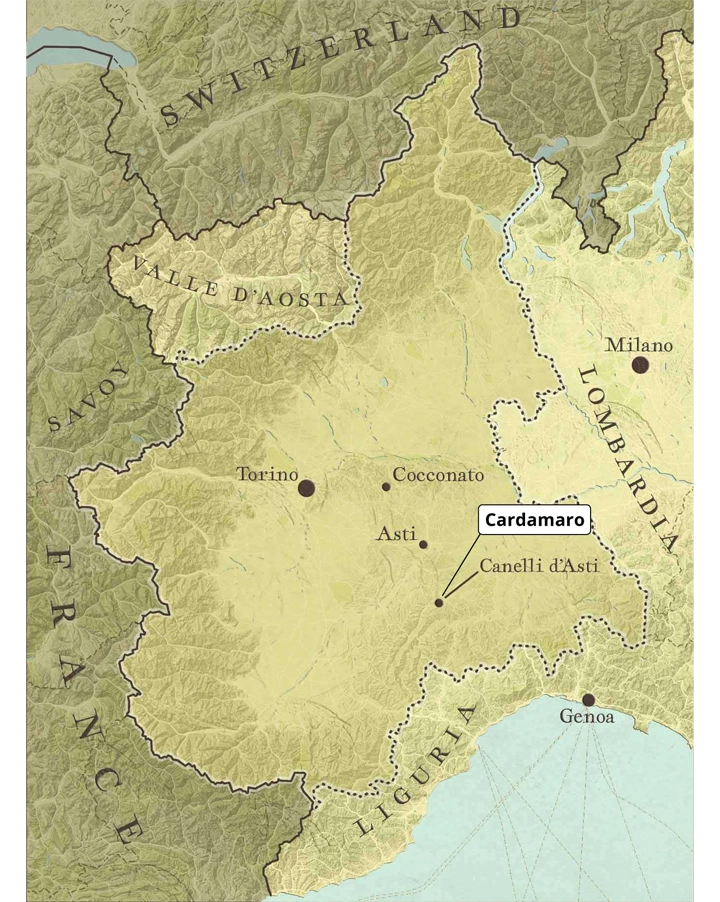Bosca Tosti Cardamaro Vino Amaro Canelli d’Asti
Bosca Tosti Cardamaro Vino Amaro Canelli d’Asti
750ml bottle
17% abv
- Enjoy as an aperitif or digestif
- Pair with salty cheeses, nuts and charcuterie
- Primarily flavored with cardoon and blessed thistle
- Substitute for whiskey in low-ABV cocktails; great with cider
- Use as an amber vermouth with whiskey or apple brandy
- Product of an 8th-generation winemaker in Canelli d’Asti, Italy
for an earthier take on classic cocktails. Cardamaro can also be used in place of whiskey for subtle cocktails, such as with Dolin Rouge in the Lower Manhattan. This is an Everyman amaro. After dinner is a wonderful way to enjoy this. It pairs excellently with funkier cheeses, like Epoisses, when most other amari fight them. Create a long drink with apple cider or ginger beer. In addition, the bitterness of cardoon works similarly to wormwood in mixing, so use Cardamaro as an amber vermouth, particularly with whiskey or apple brandy. Chill after opening—the bottle should be good for a couple of months.
Cardamaro comes from an Italian family producing wine and amaro since 1820 in Canelli, in the very heart of Piemonte. Today, principals Giovanni Bosca and Mariacristina Castelletta, along with their sons Giulio and Guglielmo, helm the company. Ancestor Rachele Torlasco Bosca, a scholar and herbalist, created Cardamaro Vino Amaro in the 1950s after she became fascinated with the physiological properties of the locally grown cardoon. Over the following years, Bosca’s herbalists perfected the recipe, incorporating 23 additional botanicals on a base of local wine.
Outside of the “big three” of wormwood, gentian, and quinine, herbalists worldwide have used many flavors as the backbones of aromatized wines. Many of these wines no longer exist, and many of those flavorings have moved into spirit-based amari and liqueurs. A few examples of “vino amaro,” or wine-based amaro, still exist, and use herbal flavors that are harmonious and familiar to traditional drinkers worldwide. Because of their wine base, these products have vinous texture and a depth of flavor that add a welcome breadth when used in mixed drinks.
Share



